
We live on a planet covered by majestic deep blue seas. In fact, 70 percent of the Earth's surface is underwater. Our climate and health are both intimately connected to the ocean, as half the oxygen we breathe is being produced by plants growing in the sea. It makes sense that if the sea is our source of life here on Earth, then the ocean could contain secrets to our health that just don't exist on land. So let's explore exactly how to tap into the power of the sea to expand our health.
Spirulina + Blue-Green Algae
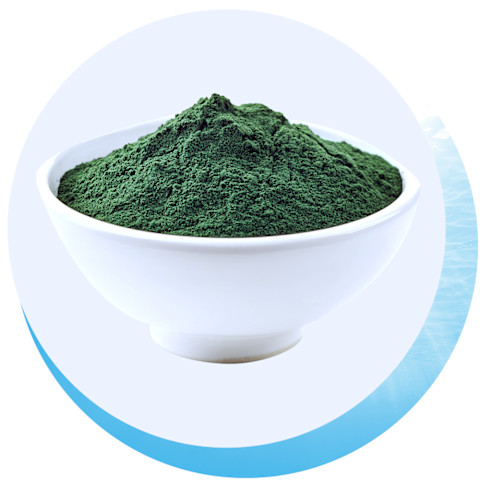
Spirulina and other blue-green algae are naturally found in fresh- and saltwater lakes around the world. Traditionally, blue-green algae were used by ancient civilizations in Mexico and Africa as a superfood. And now you can find them in powder form at your local health-food store!
What they can do for you: Spirulina is jam-packed with tons of benefits; it contains three times the protein of beef and all nine essential amino acids (the ones your body can't make and you need to get from food). Spirulina also has more calcium than milk and its chlorophyll content makes it super-detoxifying.
How to use them: It's blue-green algae that gives the mermaid and unicorn lattes their brilliant aquatic hues. Even Starbucks' sugar-laden unicorn frap took advantage of spirulina to get its beautiful color. Try mixing a teaspoon or two of blue majik algae into your own healthy elixirs, teas, and smoothies! Check out some of my favorite recipes here.
Sea Vegetables
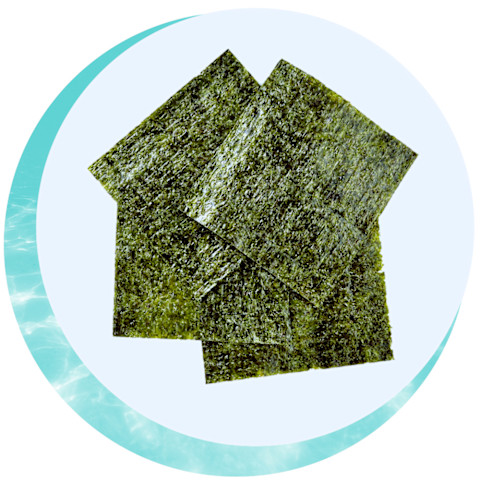
With exotic names like hijiki, nori, dulse, kombu, kelp, arame, Irish moss, and alaria esculenta, seaweeds have been consumed in Asia, New Zealand, Ireland, and other island cultures for thousands of years. Technically also a type of algae, sea vegetables all have a unique taste, look, and texture.
What they can do for you: Sea vegetables are one of the most diverse mineral sources on earth. These green superfoods are full 1 of B vitamins, vitamin C, vitamin K, magnesium, and 18 different amino acids. Sea vegetables are also considered the most effective way to get the ultra-important mineral iodine, which is needed to make your thyroid hormones. Sea vegetables also contain compounds called fucans that have various anti-inflammatory properties and have been shown2 to improve blood sugar numbers in type-2 diabetics.
How to use them: You can soak sea vegetables in soups, sprinkle flakes in your salads, use the sheets as wraps, or blend them in smoothies.
Pearl
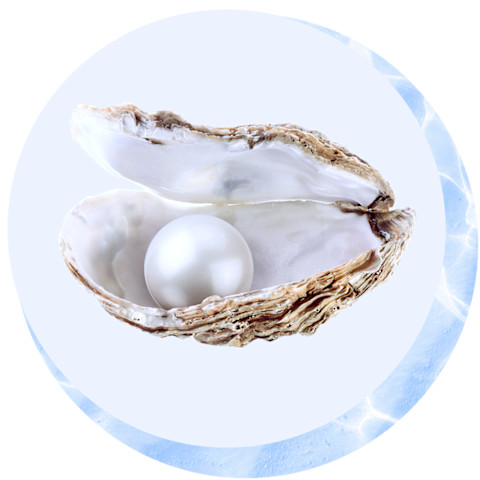
Yes, that kind of pearl. This valued product from oysters has been used in traditional Oriental medicine for generations. Crushed to a fine powder, pearl is used in skin care products and supplements, touted as a secret to ageless beauty.
What it can do for you: Pearl is the oceanic adaptogen and is often used for its calming and mood-regulating effects. Calcium-rich pearl also contains magnesium, amino acids, and a variety of minerals, making it a super beauty food for radiant skin.
How to use it: Pearl has a mild taste, so it goes great in just about everything. I use a teaspoon in smoothies and elixirs, but you can even put it in some healthy baked goods!
Marine Phytoplankton
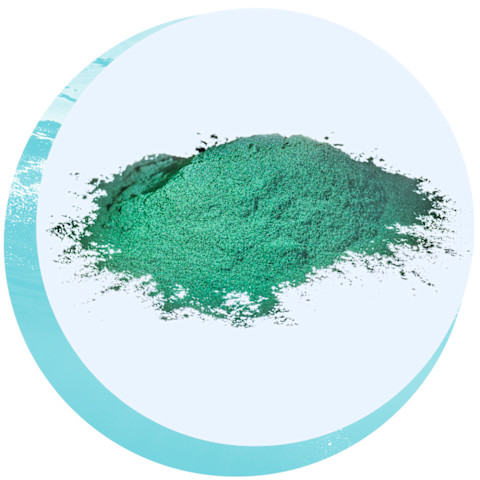
This specific kind of microalgae is considered the most important plant in the world. This is because it provides the Earth with over 90 percent of its oxygen—more than all the forests in the world combined! But marine phytoplankton is not only an important source of oxygen; it's a critical food source for ocean life and humans, too.
What it does for you: There are very few foods on this Earth that provide the raw materials for our bodies to make new cells and sustain the ones we have, but marine phytoplankton is one of them. It contains all nine amino acids that the body cannot make on its own, along with the essential omega fats; vitamins A, C, a variety of B vitamins; and trace minerals. Think of it as pure food for your cells.
How to use it: Unless you're going to wade around the ocean lopping up microalgae, the best way to get phytoplankton is through supplementation.
Sea Salt
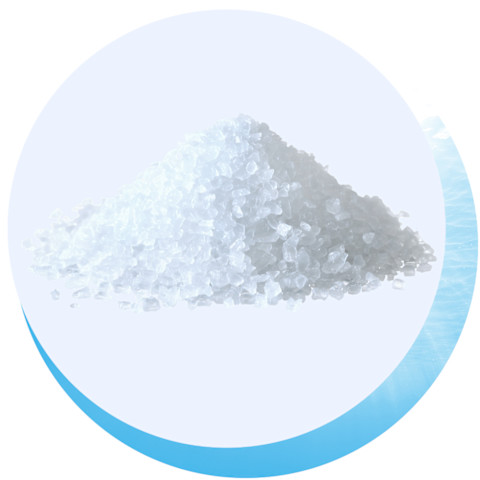
Salt from our most pristine oceans is actually an amazing superfood—nothing like our conventional table salt. Hawaiian sea salt is a beautiful red color from volcanic rock, Italian sea salt is harvested off the Mediterranean coast of Sicily, and the beautiful pink Himalayan sea salt is harvested from ancient seabeds, originally formed from marine fossil deposits over 250 million years ago.
What it does for you: These different salts have a wide array of minerals that aid in optimal immune, hormone, and electrolyte balance.
How to use it: Use these superfood salts like you would your run-of-the-mill salts. Sprinkle them on just about anything you want to add more flavor. Another way to use the power of sea salts is to simulate the ocean by drawing yourself a detox bath. Just pour two cups of one of these sea salts into your bath and soak up the healing properties straight through your skin.
Krill Oil
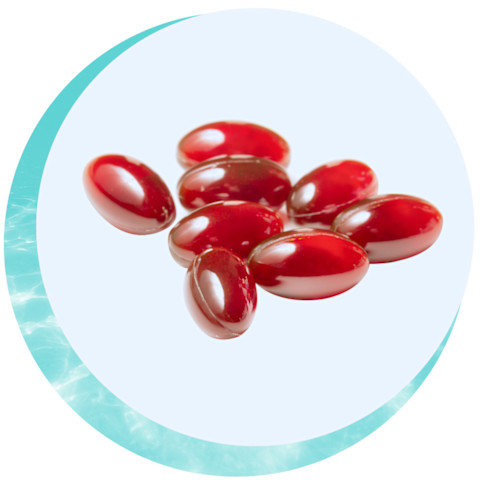
The tiny crustaceans krill are found in every ocean, and there are more of these little guys on the planet than any other creature! To put this into perspective, if you were to weigh the population of any animal on earth, even humans, krill would still weigh the most.
What they do for you: Most of us are lacking healthy fats, specifically the omega-3s, which contributes to health problems like depression, heart disease, arthritis, and inflammation. Krill oil has been found, in many ways, to be superior to conventional fish oil as it contains 50 times more of the powerful antioxidant astaxanthin. The beneficial phospholipids phosphatidylcholine and phosphatidylserine—needed for optimal cellular, hormone, brain, and nerve health—are also present in this unique oil.
How to use them: Krill oil is usually sold in capsules, and you would take them like any supplement. I'm a big fan of Neptune krill oil (NKO) and take it daily for two reasons. First, it's one of the most nutrient-dense kinds of krill oil, and second, I think anything with the word "Neptune" in front of it sounds cool.
Wild-Caught Seafood
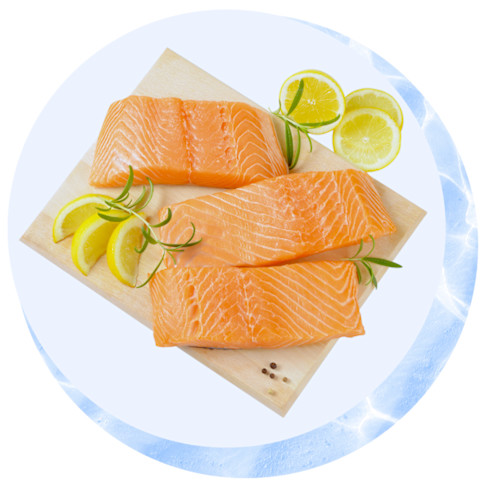
Fish such as wild-caught salmon, sardines, rainbow trout, Atlantic mackerel, and shellfish like mussels and oysters are rated by the Environmental Working Group as the best fish for you and the environment for their high omega-3 fats, low mercury levels, and sustainability factors. The ones you want to avoid due to higher levels of toxins are king mackerel, marlin, orange roughy, shark, swordfish, and tilefish.
What it does for you: As with krill oil, wild-caught fish have the brain-, hormone-, heart-, and immune-supporting omega fats. The great thing about these clean fish, though, is that they are in whole-food form, not a supplement! This allows the presence of a variety of different nutrients, minerals, and fats that can't be encapsulated in a pill.
How to use it: There are so many ways to enjoy fish so whatever floats your boat here. I love fish tacos and use lettuce or cassava flour wraps for a grain-free twist.
Marine Collagen
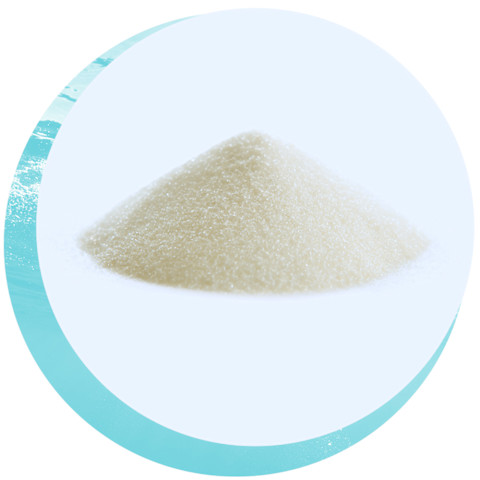
Putting grass-fed collagen powder in lattes and coffee is definitely a health trend, but one lesser-known collagen option is marine collagen from wild-caught fish.
What it does for you: One of the cleanest, most bioavailable source of protein, marine collagen is also a great way to promote healthy skin, hair, and joints. Rich in glycine, collagen is also great for supporting optimal gut and immune health.
How to use it: The most common way you will find marine collagen is in powdered form. Try adding a scoop to your favorite almond or coconut milk latte.
Magnesium Salt
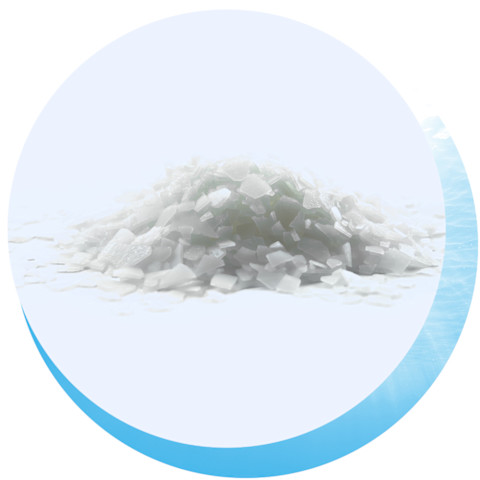
The ancient Zechstein Sea—a geological formation in Northern Europe—is rich with magnesium salt. And this specific type of magnesium has been protected, deep within the Zechstein Seabed at a depth of 2,000 meters beneath the Earth’s crust, from the toxins of our modern world.
What it does for you: Magnesium is responsible for hundreds of different crucial pathways in your body. Your hormones, brain, and heart depend on optimal magnesium levels, and most of us are deficient!
How to use it: My favorite way to get this type of magnesium is from magnesium oil spray. This is one of the most bioavailable ways to ensure optimal magnesium levels.

Will Cole, IFMCP, DNM, D.C., is a leading functional medicine expert who consults people around the globe, starting one of the first functional medicine telehealth centers in the world. Named one of the top 50 functional and integrative doctors in the nation, Dr. Will Cole provides a functional medicine approach for thyroid issues, autoimmune conditions, hormonal imbalances, digestive disorders, and brain problems. He is the host of the popular The Art Of Being Well podcast and the New York Times bestselling author of Intuitive Fasting, Ketotarian,The Inflammation Spectrum, and Gut Feelings.
More from the author:
Functional Nutrition Training
Check out Functional Nutrition Coaching
A cutting-edge nutrition deep dive taught by 20+ top health & wellness experts
Learn moreMore from the author:
Functional Nutrition Training
Check out Functional Nutrition Coaching
A cutting-edge nutrition deep dive taught by 20+ top health & wellness experts
Learn more
Will Cole, IFMCP, DNM, D.C., is a leading functional medicine expert who consults people around the globe, starting one of the first functional medicine telehealth centers in the world. Named one of the top 50 functional and integrative doctors in the nation, Dr. Will Cole provides a functional medicine approach for thyroid issues, autoimmune conditions, hormonal imbalances, digestive disorders, and brain problems. He is the host of the popular The Art Of Being Well podcast and the New York Times bestselling author of Intuitive Fasting, Ketotarian,The Inflammation Spectrum, and Gut Feelings.
